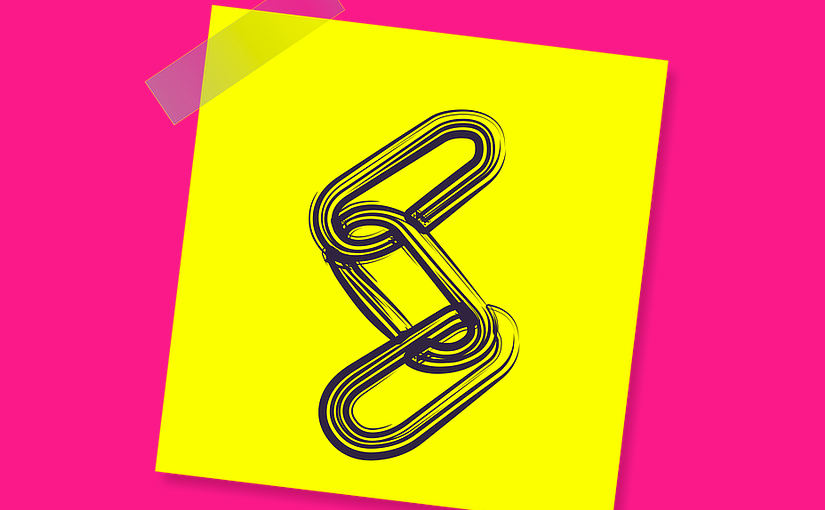Links? What are links?
Links – also known as hyperlinks, URLs, when another websites “point their readers” to one of your webpages, citations, references, etc.
For example, this -> hyperlink – is a link to a webpage about hyperlinks.
Pretty simple right?
That’s basically how Google works. They scrape the Internet to see which webpages link to other webpages and then rank ALL webpages according to this massive global “link popularity contest.”
There are a few other “SEO” things you should do to your website and webpages. We’ll get into those at the bottom of this article.
Is It Easy To Get People To Link?
Not really.
When was the last time you “linked” to another webpage?
If you never touch websites or publish blog articles, then the answer is probably never.
However, people who blog a lot or people who build websites will do a little bit of linking once in a while.
Here’s a breakdown of the reality of how sites get links:
1. Age
This is the unfair part.
It’s kind of like how all the Baby Boomers are sitting on very expensive properties right now because they bought it years ago. For millennials, buying a piece of property is basically impossible (well, at least in major metropolitan areas).
People who built the first websites back in the 1990s have built up some serious link equity over time. They are hard to de-throne.
However, the sooner you get a site built and some serious content created (like blog posts, FAQ webpages, etc.), the quicker they can start earning links.

2. A Strong Brand
Big name brands tend to get preferential treatment in search engines.
The main reason why is that search engine users expect the brand’s website to show up first if a query is performed for their brand name.
Makes sense, right?
Additionally, big brands are trusted. They rarely engage in shady search engine practices. They have also have a brand image to protect. So, it’s easy for search engines to present big brand listings first, because chances are their users aren’t going to run into any surprises. It’s a safe bet.
But this preferential treatment does give them an advantage. It helps pull up all the rest of their content in the search engine rankings as well.
And when a site always ranks on the first page of Google for a lot of different searches, those pages tend to get linked to more. It becomes self-perpetuating.
The lesson here: Always focus on building your brand. Nothing else will pay higher dividends down the line.
3. Press
This is something that a lot of smaller businesses and startups neglect: Getting old-school style press.
Press is great for building links.
If you can get a newspaper to write about you, generally they are going to link to you. And newspapers are considered quality sources by the search engines, so the links from newspapers generally carry more weight.
We recommend having a constant PR strategy. Never let up. It’s a great way to build the brand and links at the same time.
4. Creating Extraordinarily Great Content
So if there is a way to “hack” link building – this is the method.
There are no barriers; it just takes creativity and a little elbow grease. It’s also what we do here at Judicious, Inc. for our clients :).
When you create a useful article or blog post, it gives people a reason to link to it. The only real trick to it is to get people to know about the content so that they will link to it.
Sometimes you’ll get lucky and the search engines will index your blog posts and articles automatically and people will find it. Some of those people will start linking to it. And if you’re really lucky, someone influential will broadcast it to their audience.
But that’s all luck. Not a good business strategy. Which brings us to…
5. Manual Outreach
This is the hard part.
Or well, the part that many people don’t like to do. They have already put a ton of time and energy into writing a great blog post or article. The last thing they want to do is spend a few days reaching out to people to share and link to it.
It’s the salesy part. A lot of people don’t like being in sales.
That’s why it’s a good idea to hire someone to do this part – someone or some agency that’s a good fit.
6. Filling Out Online Profiles / Relevant Directories
And finally, the easy stuff that you have an intern do. There are tons of online profiles to fill out on the Internet. From social networks to business directories. You can probably have someone do this for a year straight. The only warning we have is to stay away from low-quality directories – and you’ll know them when you see them.
On-Page SEO Things To Do
On-Page SEO means things you can do to the actual webpages to help with your SEO. It’s the technical stuff.
These things carry some weight and should be done to make sure you have the best chance at showing up in the search engines.
Here they are: Make sure…
• Each webpage (URL) has its own unique title tag. Do not duplicate title tags.
• Each webpage has its own unique meta description tag filled out.
• To only have one H1 heading tag per webpage.
• To properly use canonical tags so that you don’t have duplicate webpages floating around your website.
• Your site is mobile friendly. As a matter of fact, have your website rebuilt to be “mobile first” if it isn’t already.
• Your site is secure. All web URLs should be https.
If you need help with any of the above items, Judicious, Inc. can help you get them knocked out.

